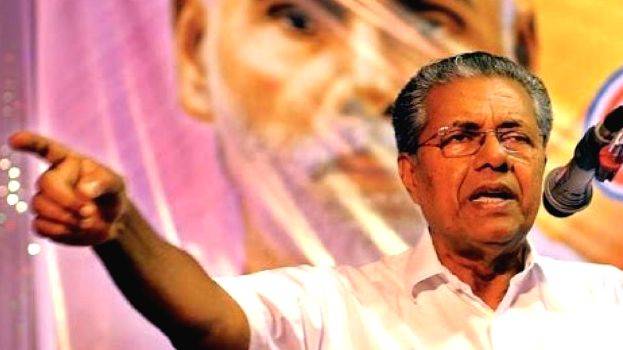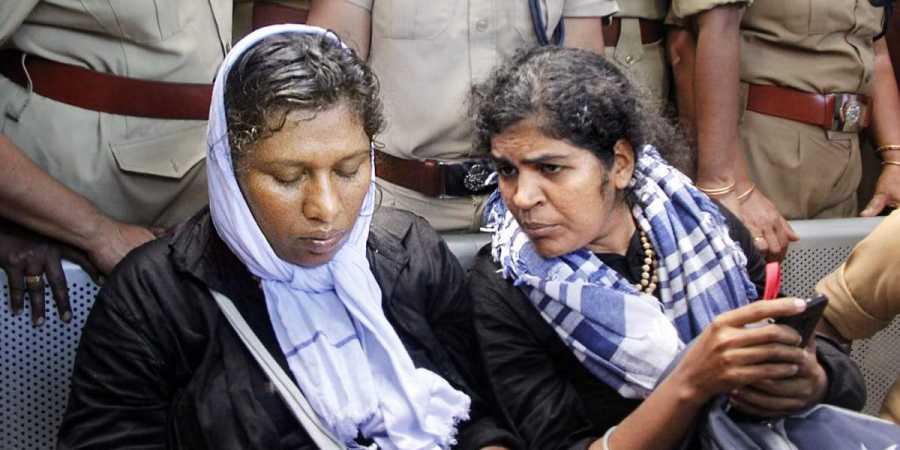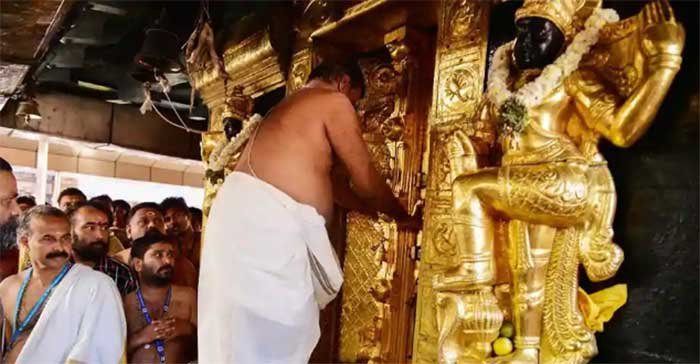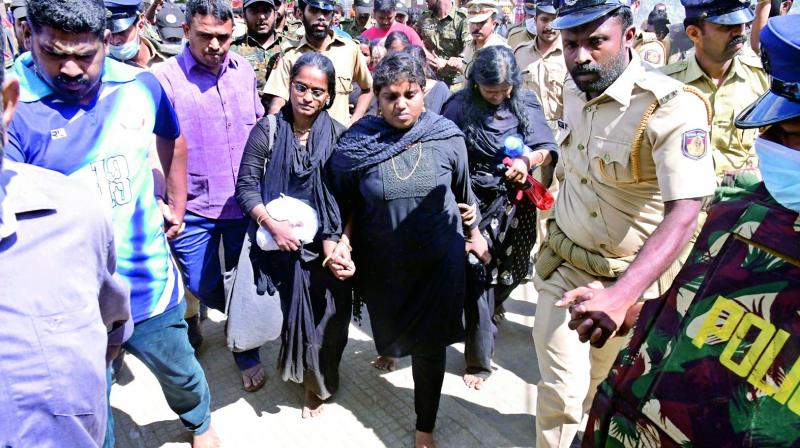
After the Ayyapa jatara ended on January 14 with the so called ‘Makara Jyothi’ appearing for the devotees at Sabarimala, Pinarayi Vijayan, the chief minister of the Left front government, emerged a skillful social reformer and good administrator.
The Narendra Modi government deployed its Kerala wing to push him against a wall by opposing the implementation of the Supreme Court judgment in 2018 lifting the ban on women of menstruating age entering the Sabarimala temple. This is a judicial pronouncement affirming the spiritual citizenship rights of women. The conservative forces of Kerala, in alliance with a reactionary Nair Service Society (NSS), attacked Pinarayi Vijayan in the meanest language possible.
Vijayan was born in 1945 in a village called Pinarayi and belongs to the toddy tapper community called Thiyyar. His father and elder brother were hard working toddy tappers. Vijayan emerged from that lower caste and poor background. To fund his college education, he worked as a handloom labourer.
As a communist leader, he fought the reactionary conservative forces in Kerala. He was the longest serving secretary of CPI(M)’s Kerala unit, serving from 1998 to 2015. He is also the party’s politburo member.
During the 2018 Kerala floods, Vijayan proved his mettle as an administrator. The Modi government created several hurdles, not providing adequate Central funds and also not allowing foreign funds from sympathetic countries. Yet, Vijayan mobilised resources and worked for the reconstruction of the state in a remarkable way. He earned international acclaim for protecting the people and property of Kerala during a difficult disaster.
With the state still reeling under the effect of the flood, the Supreme Court judgment of September 28, 2018 came in. That judgment made a philosophical departure by affirming the spiritual and social equality of women. In its introduction, the judgment said, “In the theatre of life, it seems, man has put the autograph and there is no space for a woman even to put her signature”.
The Hindutva network’s anti-women attitude
Brahminical patriarchy has opposed the freedom of Indian women to receive education and enjoy religious freedom. Worse still, her reproductive cycle is treated as untouchable. The Hindutva network’s thoroughly anti-women attitude was exposed in the aftermath of this judgment being implemented at Sabarimala.
The fundamentalist network, organised under the so-called Ayyappa Dharma Sena, fanned attacks on women, media. Their protests even resulted in bloodshed in the state. The Ayyappa Dharma Sena is headed by Rahul Easwar, the grandson of Kandararu Maheshwararu, the former head priest of Sabarimala.
This man is a good example for an unreformed Indian upper caste man, even after attending the London School of Economics.
The Supreme Court judgment made a major theoretical point when it said, “Patriarchy in religion cannot be permitted to trump over the element of pure devotion borne out of faith and the freedom to practice and profess one’s religion.”
Rahul Easwar failed to understand this judgment’s message. The London-educated Brahmin man organised a “suicide squad” with the BJP’s tacit support. He said if the Supreme Court judgment is implemented, members of the Dharma Sena would “cut themselves to spill blood on the temple floor”.
Pinarayi Vijayan, who graduated by weaving clothes as a labourer in Kerala, had to teach a spiritual lesson to unreformed forces the idea that ‘God created all human beings, men and women equal’. The SC’s judgment is meant to deepen the Indian spiritual democracy and establish a more egalitarian spiritual system.
Quite surprisingly, the Kerala Congress also joined the BJP’s casteist and anti-women protests to try and create a crisis and overthrow the Pinarayi Vijayan government.
A new renaissance movement
To fight back, Vijayan launched a new renaissance movement (Navodhanam) by mobilising millions of women, Dalits, OBCs, Adivasis and exposed the caste conspiracy of Hindutva fundamentalists.
After A.K. Gopalan (1904-1977), he became the first communist to combine social reform with class struggle in that state. In the history of the Indian communist movement, he succeeds Puchalapalli Sunadarayya (1913-1985) and Gopalan to launch a major socio-spiritual reform movement using the apex court’s judgment and that too from a position of power.
In fact, he is the first communist leader to initiate spiritual reform as a chief minister.
The anti-women forces called him an unworthy toddy tapper and that he cannot rule the state. They said he should go back to his caste occupation.
By organising a 620-km-long women’s wall from one end of Kerala to the other, Vijayan gave a fitting reply on the streets. The right of women to enter the Ayyappa temple divided the Malayali society on caste and class lines. But it is apparent that a vast majority are with Pinarayi Vijayan. People from the state say if this was an election, he will win hands down.
A long history of reform
Kerala has been on a reformist course from the days of Cheramal Perumal (circa 622 AD). Perumal left his kingdom and embraced Islam in the presence of Prophet Muhammad (the first Cheramal Perumal masque was built in Kerala in 629). The women’s struggle to enter Sabarimala is the latest of these reform movements against the oppressive Brahminism of Kerala.
The conditions of women, Dalits, OBCs and Adivasis of that state have improved a lot. This was possible through a struggle led by women and lower caste men, because the counter reform movements were equally strong.
The Adishankara’s counter-reform and the Sabarimala counter-reform have many things in common. Adishankara’s patriarchal Brahminism, anti-Buddhism and vegetarianism stagnated Kerala’s society more than any other. These oppressive conditions helped the expansion of Islam, Christianity and communist ideology. This consequently has made Kerala more democratic in choice of food, caste and gender relations.
The Sabarimala counter-reform has transformed the class-oriented Communist party into a socio-spiritual reform party as well. The CPI(M)’s Bengal state unit was not able to infuse creativity into its functioning. Hence, it lost its socio-political base. The Kerala unit, however, produced a new renaissance leader in Pinarayi Vijayan.
Kancha Ilaiah Shepherd is a political theorist and chairman of T-MASS.
Originally published by The Wire















































